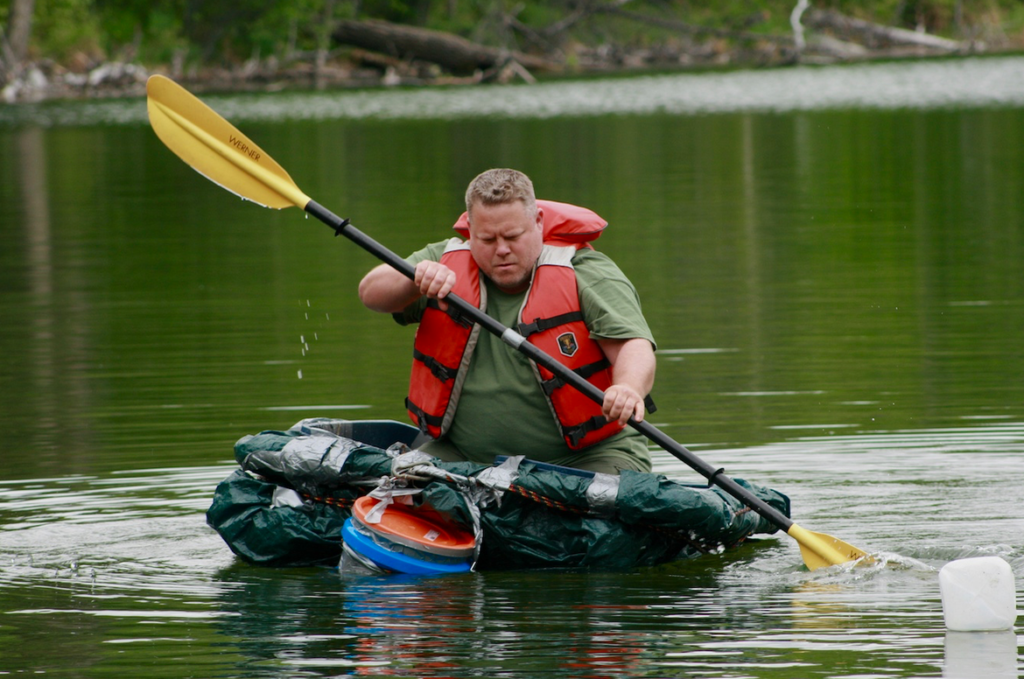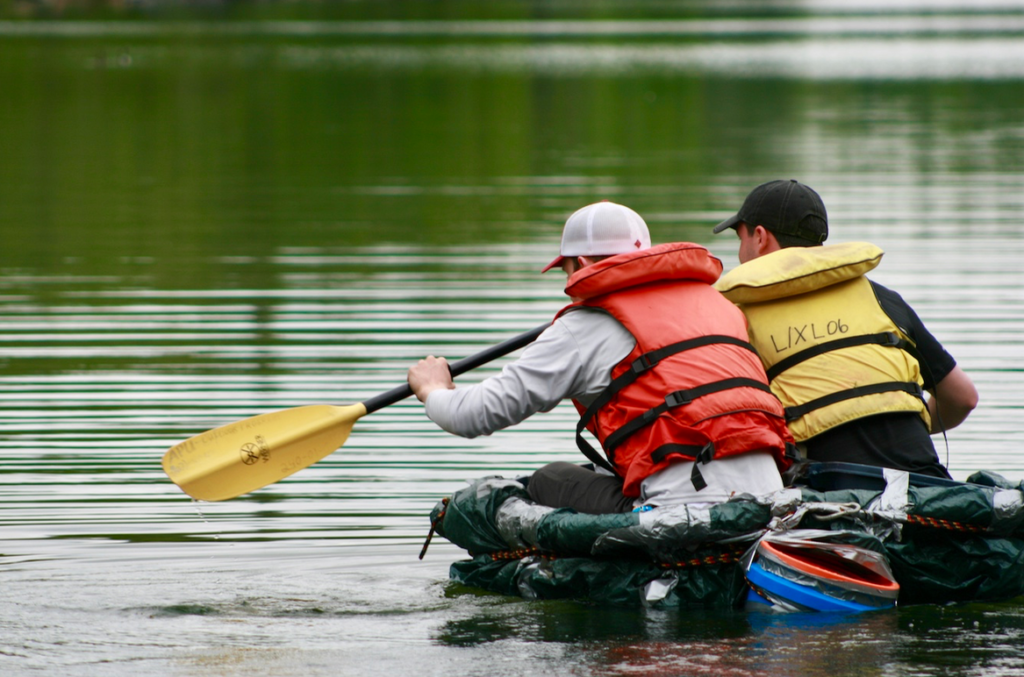Though the Leadership course, a required class for Master of Business Administration students, doesn’t have traditional tests, co-instructor Christopher Pavadore would argue that the students are constantly being tested.
During the two-week class, APU students, as well as a handful of students from Danube University Krems in Austria, complete a series of activities that are designed to challenge them as leaders.
“Each group will go through the motions of completing the activities in different ways,” Pavadore said. “The learning that comes out of them can vary from group to group and individual to individual — they have a greater understanding of how they respond to physical, emotional or mental challenges.”
Though what happens during the class has long been kept mum — instructors don’t want to give too much away before the following year’s class — Pavadore was able to give some brief insight into the nature of the program.
On the first night of the course instructors (Pavadore, as well Provost Tracy Stewart, Director of Leadership Anchorage Kitty Farnham, and civil engineer Brian Gastrock) lecture on theoretical concepts behind self-awareness and emotional intelligence and how-to apply it to the workplace in a broad setting. Over the course of the following weekend, those themes were applied through exercises with specific learning objectives at the APU Spring Creek Farm, a local lake and in Hatcher Pass.
“The course was developed to help enhance self-awareness in our own strengths and weaknesses in how we respond to data in the workplace,” Pavadore said. “Each activity we do in the class is designed to challenge a set or couple of sets of character qualities.”
They’re also tasked with identifying a weakness that they’d like to spend the class working on. Many, Pavadore said, choose assertiveness.
“What’s cool is that there are so many opportunities throughout the first weekend to test those,” Pavadore said. “Your team, when debriefing, should help point out times you were assertive or times you just followed what the group did. It’s really helpful for strengthening that.”
During the second week of the course, the class reviews the concepts they learned the first night and look at them through the lens of the weekend’s exercises. From there, each group takes what they’ve learned and use it to make an exercise for the other groups that focuses on a clear learning objective, which may range from communication and strategy to self-awareness and ethics.
As an instructor, Pavadore said what he hopes students take away from the course is the ability to better reflect on how they respond to ideas and problems as they arise.
“I think students learn to better articulate how they feel, because they’re given the tool to better reflect effectively,” Pavadore said. “For instance, one of the concepts we teach is to recognize an emotional response to something as just as an emotion and to not get hooked on it, but to let it go. So common in business and life something happens and we can’t get past our emotional responses to that. This course really does try to get the students to be more aware of when that’s happening and to better respond.”
For more, check out the following photos shot by Provost and Instructor, Tracy Stewart.
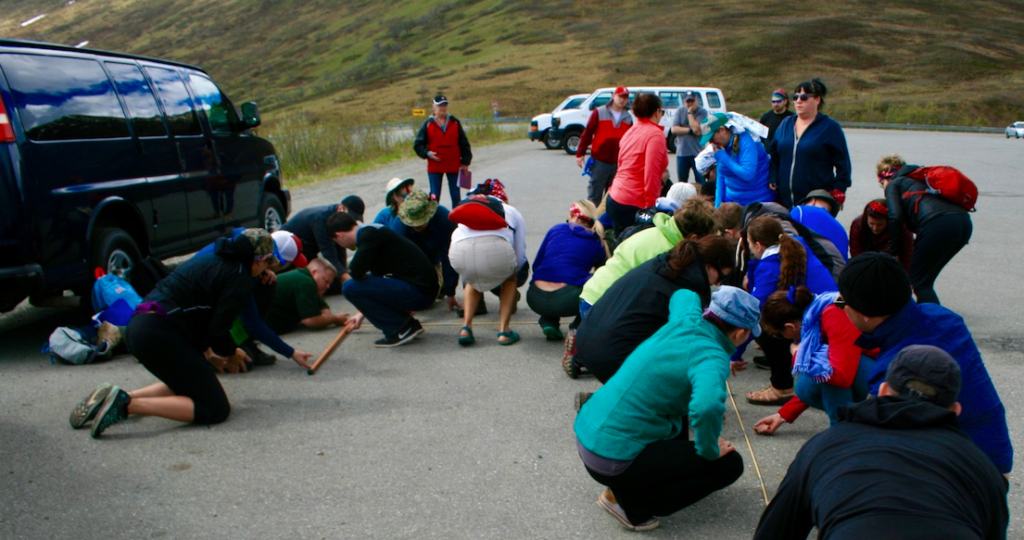
Team-building activities in Hatcher Pass
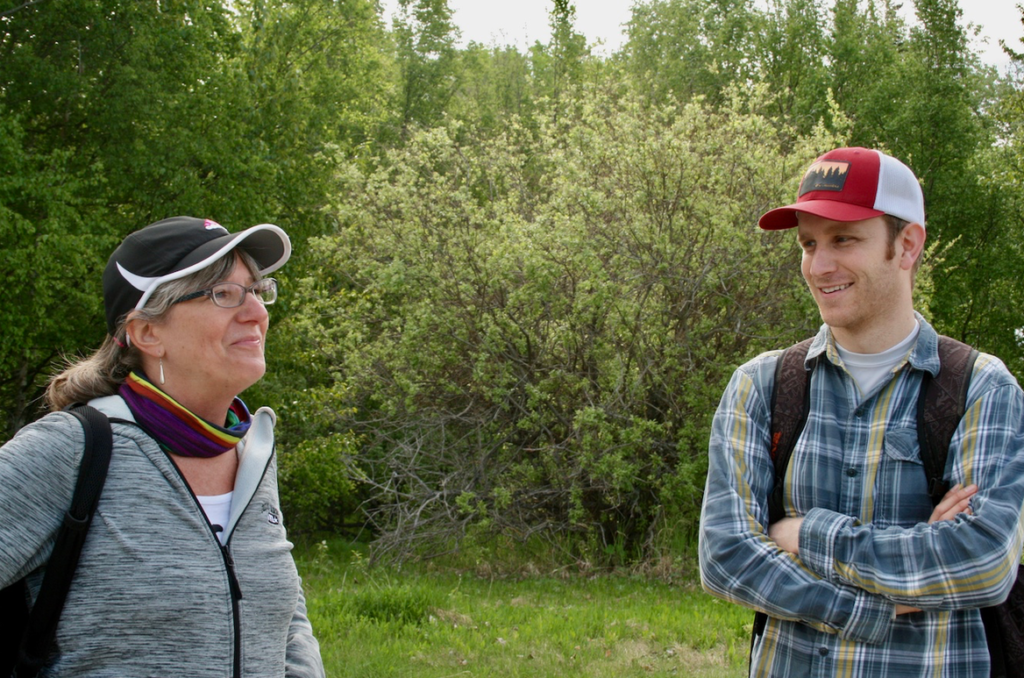
Instructor Farnham and a Leadership student

Strategizing before an exercise at Spring Creek Farm
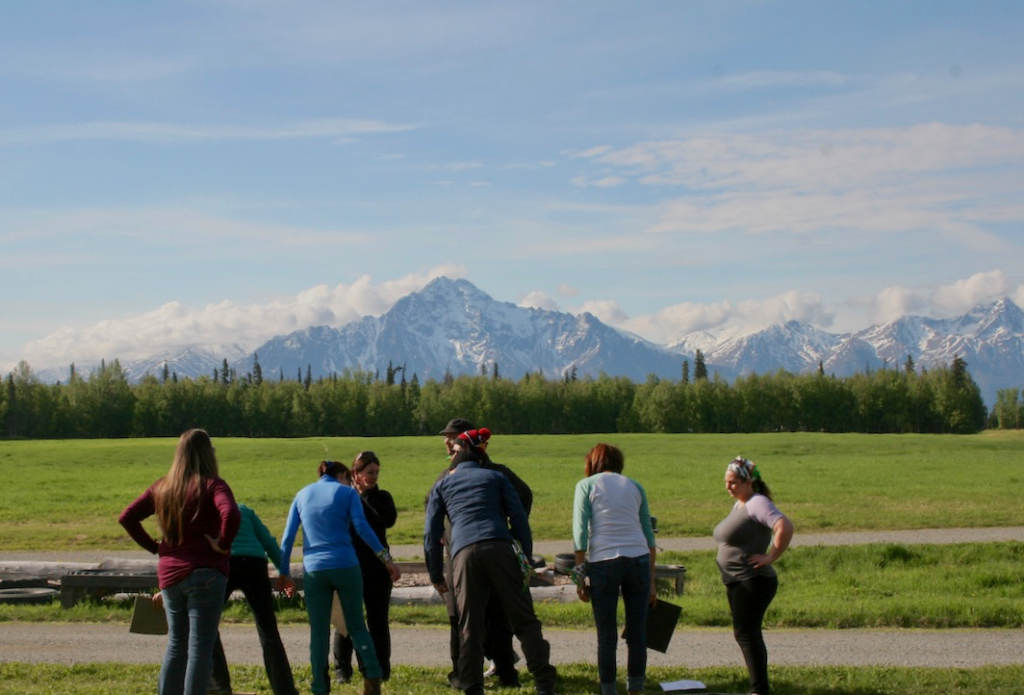
Activities at Spring Creek Farm
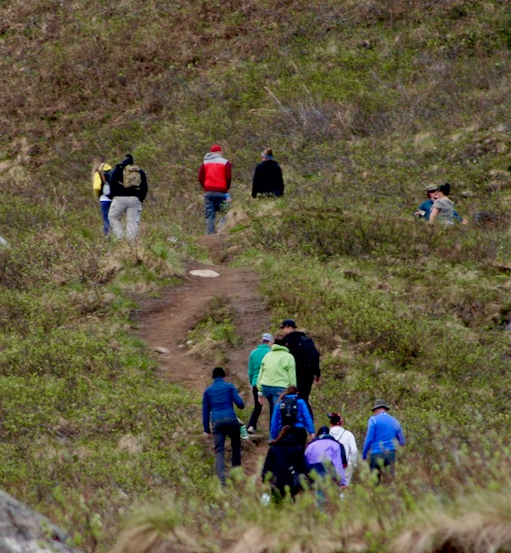
Students hike in Hatcher Pass
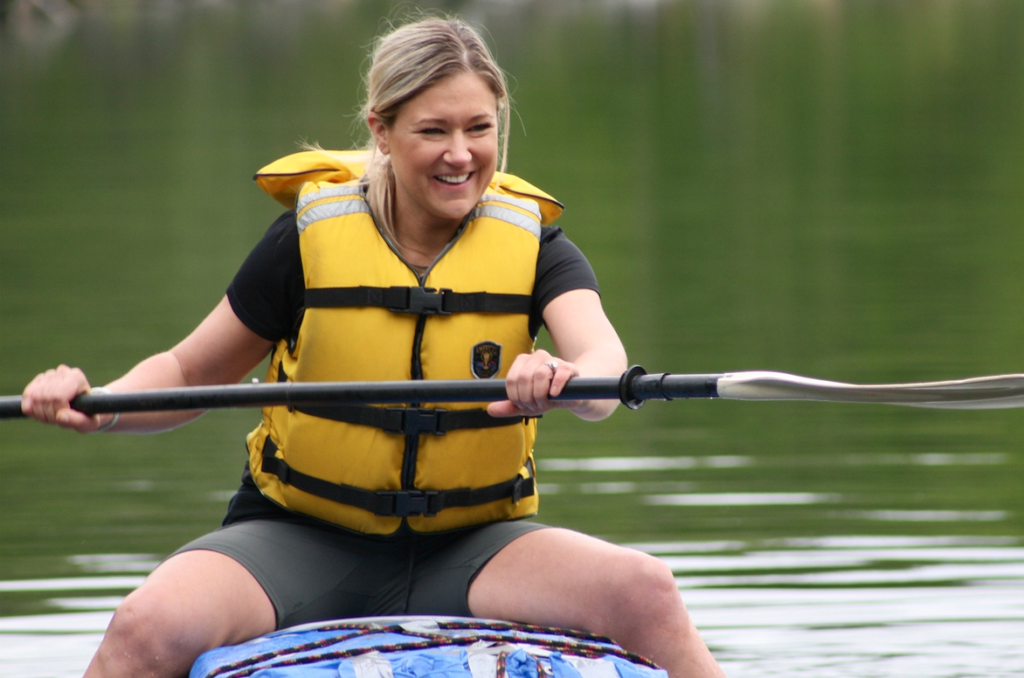
Activities in the Mat-Su Valley
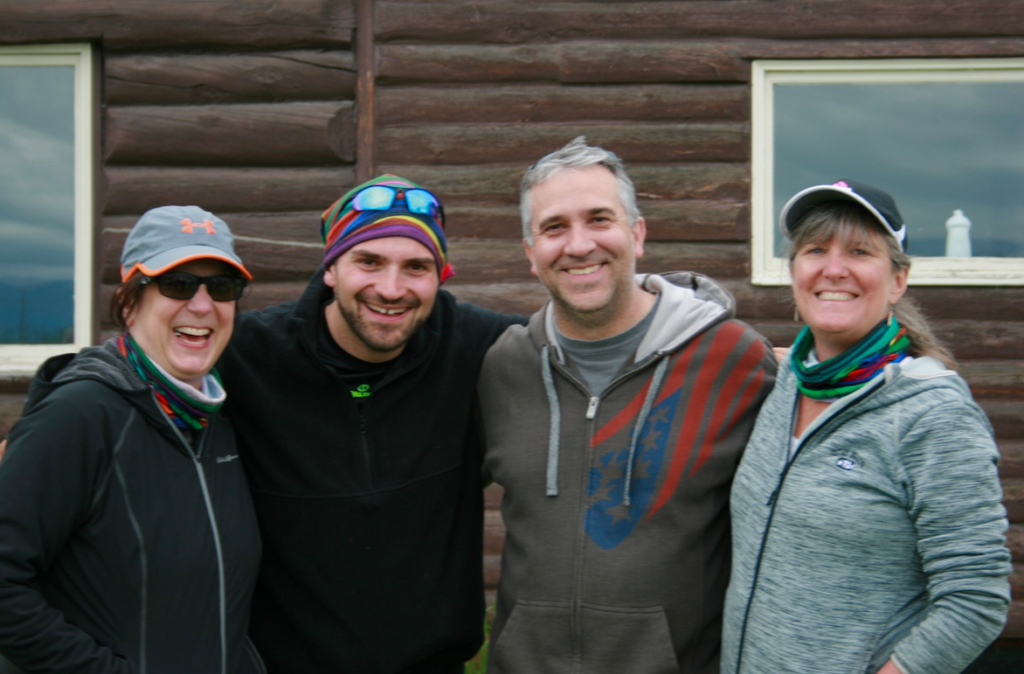
Instructors from left to right: Tracy Stewart, Christopher Pavadore, Brian Gastrock, Kitty Farnham.
